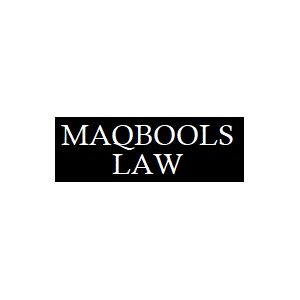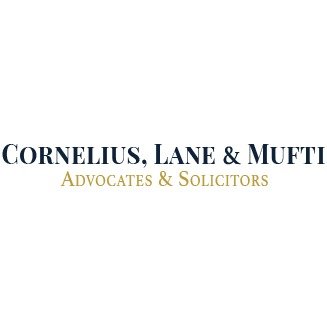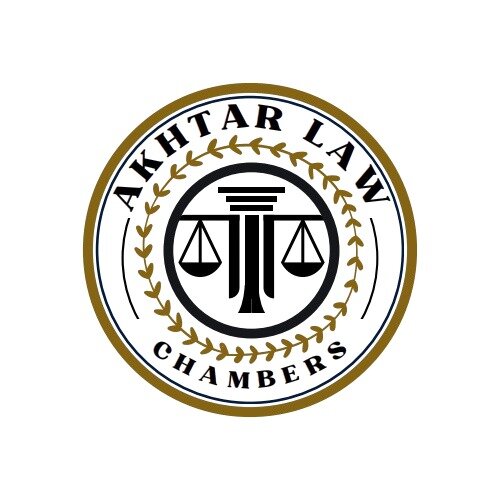Best Conveyancing Lawyers in Pakistan
Share your needs with us, get contacted by law firms.
Free. Takes 2 min.
Free Guide to Hiring a Real Estate Lawyer
Or refine your search by selecting a city:
List of the best lawyers in Pakistan
About Conveyancing Law in Pakistan
Conveyancing in Pakistan is the legal process involved in transferring property ownership from one person or entity to another. This process includes the preparation, verification, and execution of legal documents such as sale deeds, title transfers, and registration of property. Conveyancing serves not only to establish clear ownership but also to avoid future disputes regarding real estate transactions. The laws and procedures related to conveyancing are influenced by federal and provincial statutes, and require careful compliance to ensure legal validity of the transfer.
Why You May Need a Lawyer
Hiring a lawyer for conveyancing in Pakistan is highly recommended due to the complexity of property laws and documentation. Common situations where legal assistance is essential include:
- Purchasing or selling residential or commercial property
- Transferring inherited property among heirs
- Executing a gift or transfer deed
- Verifying the legal status and ownership history of a property
- Registering property with local government authorities
- Handling court cases or disputes related to property transfers
- Resolving issues of forged or fraudulent property documents
A qualified lawyer ensures that all paperwork is complete, registration is conducted lawfully, and your rights are protected during and after the conveyancing process.
Local Laws Overview
Several key legal provisions govern conveyancing in Pakistan. Some of the major laws and regulations include:
- The Transfer of Property Act, 1882 - sets out the basic framework for property transfers
- The Registration Act, 1908 - regulates the registration of property documents
- Stamp Act, 1899 - deals with payment of stamp duties on property transfer documents
- Land Revenue Acts (provincial) - govern land records and mutation procedures
It is essential to comply with the requirements for proper execution of sale deeds, payment of relevant taxes and duties, and timely registration of documents with the relevant land and revenue offices. Failing to adhere to these legal obligations can result in legal disputes and loss of ownership rights.
Frequently Asked Questions
What is conveyancing?
Conveyancing is the legal process of transferring ownership of property from one party to another, involving the preparation and registration of legally binding documents.
Is hiring a lawyer mandatory for conveyancing in Pakistan?
While not legally mandatory, hiring a lawyer is highly advisable due to the complexities involved. Legal assistance helps prevent errors, fraud, and future disputes.
What documents are required for property conveyancing?
Common documents include the original title deed, sale agreement, previous registry documents, CNIC copies of buyer and seller, and receipts of payment for government taxes and duties.
How long does the conveyancing process take in Pakistan?
The process typically takes between two to eight weeks, depending on the efficiency of the parties involved and the verification of documents.
What are stamp duties and who pays them?
Stamp duties are government fees paid on the transfer of property. In most cases, the buyer is responsible for paying these duties at the time of registration.
Can I transfer property as a gift in Pakistan?
Yes, property can be transferred as a gift through a registered gift deed, which must be executed and registered according to legal requirements.
What risks are associated with improper conveyancing?
Risks include potential loss of property rights, legal disputes, rejection of registration, and exposure to fraud or forged documents.
How is property ownership verified?
Ownership is verified through a thorough search of the land record office, examination of title documents, and legal due diligence by a qualified lawyer.
Do I need to pay taxes when selling property?
Yes, certain taxes such as capital gains tax and property transfer tax may apply, depending on the transaction value, location, and type of property.
What is the mutation of property?
Mutation is the process of updating land records to reflect the new owner after a property transfer. This is done at the local revenue office after registration of the sale deed.
Additional Resources
If you need more information about conveyancing in Pakistan, the following resources may be helpful:
- Provincial Boards of Revenue (Punjab, Sindh, Khyber Pakhtunkhwa, Balochistan)
- Land Record Management and Information Systems (LRMIS) for digital land record services
- Local District Courts and relevant registrar offices
- Pakistan Bar Council for finding registered legal practitioners
- Federal Board of Revenue for guidance on property taxes and duties
Next Steps
If you require legal assistance with conveyancing in Pakistan, consider the following steps:
- Gather all available property documents for review
- Consult a qualified and experienced property lawyer
- Verify the legal standing of both the property and involved parties
- Ensure all documents are properly drafted and executed
- Complete all necessary steps for registration and payment of stamp duties
- Stay informed about your legal rights and obligations throughout the process
By following these steps and seeking proper legal advice, you can help ensure a secure and compliant property transfer in Pakistan.
Lawzana helps you find the best lawyers and law firms in Pakistan through a curated and pre-screened list of qualified legal professionals. Our platform offers rankings and detailed profiles of attorneys and law firms, allowing you to compare based on practice areas, including Conveyancing, experience, and client feedback.
Each profile includes a description of the firm's areas of practice, client reviews, team members and partners, year of establishment, spoken languages, office locations, contact information, social media presence, and any published articles or resources. Most firms on our platform speak English and are experienced in both local and international legal matters.
Get a quote from top-rated law firms in Pakistan — quickly, securely, and without unnecessary hassle.
Disclaimer:
The information provided on this page is for general informational purposes only and does not constitute legal advice. While we strive to ensure the accuracy and relevance of the content, legal information may change over time, and interpretations of the law can vary. You should always consult with a qualified legal professional for advice specific to your situation.
We disclaim all liability for actions taken or not taken based on the content of this page. If you believe any information is incorrect or outdated, please contact us, and we will review and update it where appropriate.
Browse conveyancing law firms by city in Pakistan
Refine your search by selecting a city.

















